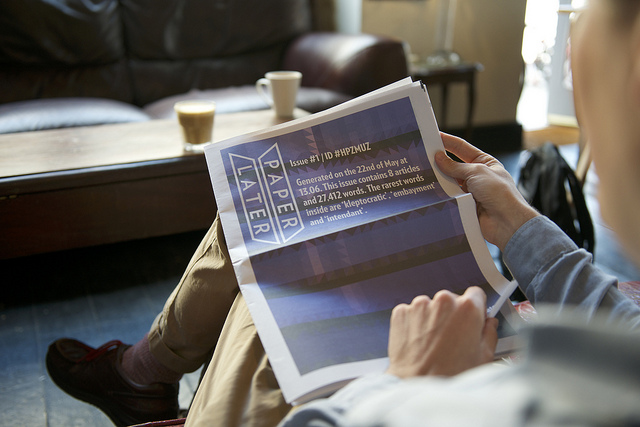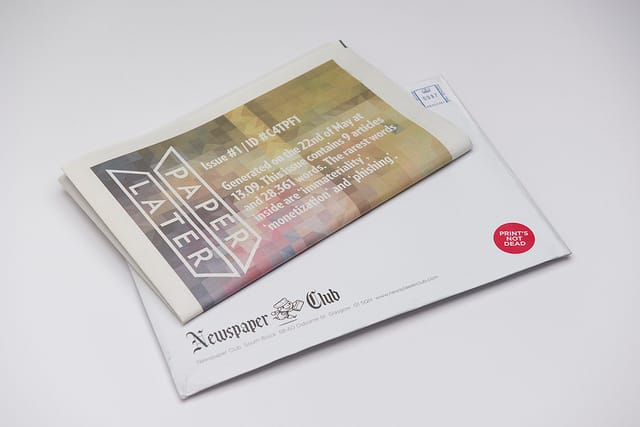The Newspaper Club’s latest experiment in printing challenges you to make some tough decisions about what you read and how you read it.
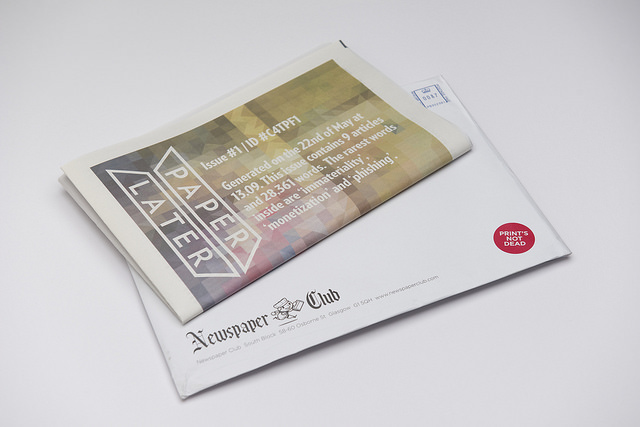
The spread of networked technologies and the accelerated pace at which we need to consume information has given rise to a particular cultural disease: FOMO, or the “fear of missing out”. Trends and news stories can be germinated, incubated, disseminated and dismissed in the time that it takes you to travel from your home to your place of work. The anxiety of trying to remain afloat in this irrepressible tide of media is a malaise for which there are no true solutions.
One of the few coping mechanisms thus far developed are the so called “read it later” applications, mechanisms that allow you to pull the content from webpages and store it on a mobile device at the click of a button, archiving the information to be consumed at another time, even without an internet connection. But while apps like Instapaper, Pocket or Readability are perfectly functional, they don’t cut to the core of the issue; any device-based text, even when temporarily disconnected from the network, is still trapped in a soup of competing programs, pictures, movies and games, not to mention the growing pile of unread articles that you, trigger happy and endlessly behind, have seamlessly collected. Is there no escape?
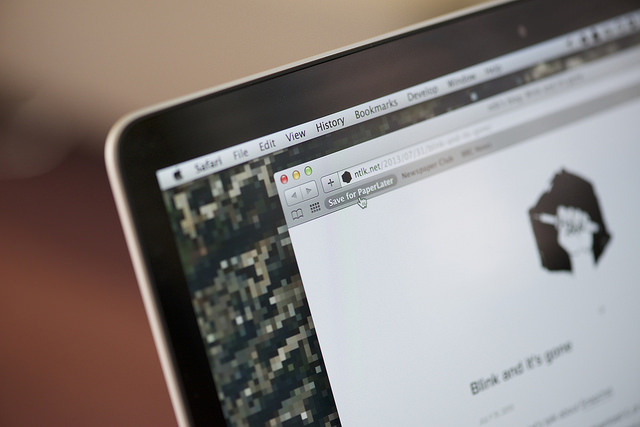
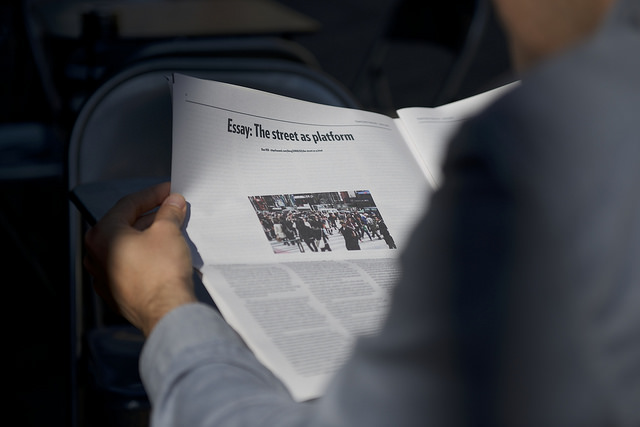
What this process needs is a bit of curation, some parameters that slow you down, force you to carefully consider what is of importance and what is not. In short, something that requires you to be your own editor. The cruel twist at the end of any debilitating bout of FOMO is that, the more you try and cram in, the more you miss out out on, leaving you even more undernourished and unsure as to what might actually be worth your time – after all, you can’t miss out on things that weren’t worth getting in on in the first place.
This is where PaperLater steps in. Brought to you by the good people at The Newspaper Club, PaperLater looks like it extends the experiment that the printer carried out in conjunction with the Guardian at their Shoreditch coffee shop, The Long Good Read. This created a weekly print publications of their best longform online articles, the editorial design done by algorithm. PaperLater combines this concept with the same principles that guide the aforementioned applications, an in-browser button that allows you to siphon off web content. The difference here is the destination. Instead of a device, the text, accompanied by one key image, is processed by PaperLater’s software and laid out into your own custom newspaper, which will then arrive through your door within three to five days.
Five days – that’s 120 hours, or 7200 minutes, or 432,000 seconds: hair-raising statistics in an age when ‘now’ is already too late. To put that in perspective, you can download a two hour high definition movie in roughly twenty seven seconds on the UK’s fastest widely available broadband service; in five days you could download that movie 16,000 times over. Your newspaper will also cost you £4.99 (for a maximum of twenty four pages). That’s a lot of money and time for something you could otherwise read instantly and for free. But we all know that, really, in whatever sphere, quantity is often an easy excuse for quality and that’s no different for reading. A modicum of time and price can be helpful barriers that force to you to make tough decisions about what is valuable and what is not, keeping you from making yourself sick at the complimentary all-you-can-eat buffet.
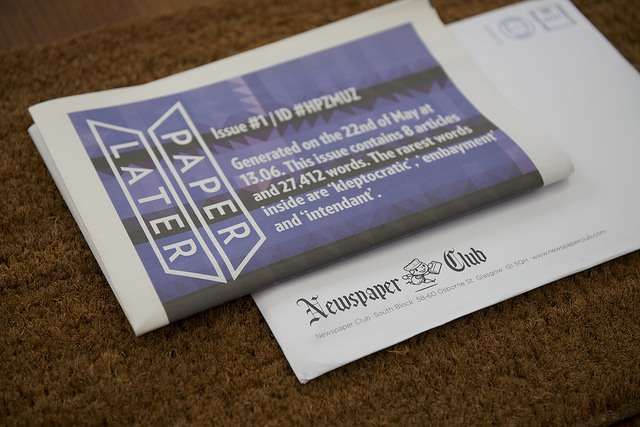
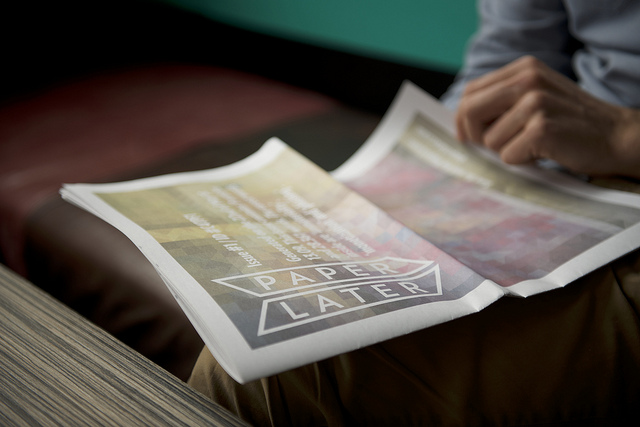
That’s before you consider the fact that, despite the protestations of the publishing progressives, paper is still widely regarded as a better conduit for mid- to longform content than the screen. As Ferris Jabr reported in Scientific America in 2013, research suggests that paper holds an advantage over your computer, tablet and phone in everything from level of eye strain to mental stress to comprehension and longterm recall. For most people, however, holding and turning a page is just a more enjoyable experience than scrolling through or flicking at a screen. Added to this is the bonus that, at the end of the year, you will have a handy physical document of what you considered to be the crucial articles, essays and news pieces from the previous fifty two weeks – an invaluable resource for anyone for whom reading and research is a core part of their job.
It remains to be seen whether PaperLater is a proposition that people can buy into or just an over-engineered anachronism, but the idea is certainly innovative. For those of you that spend your working week sinking under the weight of your online reading, £4.99 might just be the price of a newspaper-shaped lifeline.
paperlater.com
